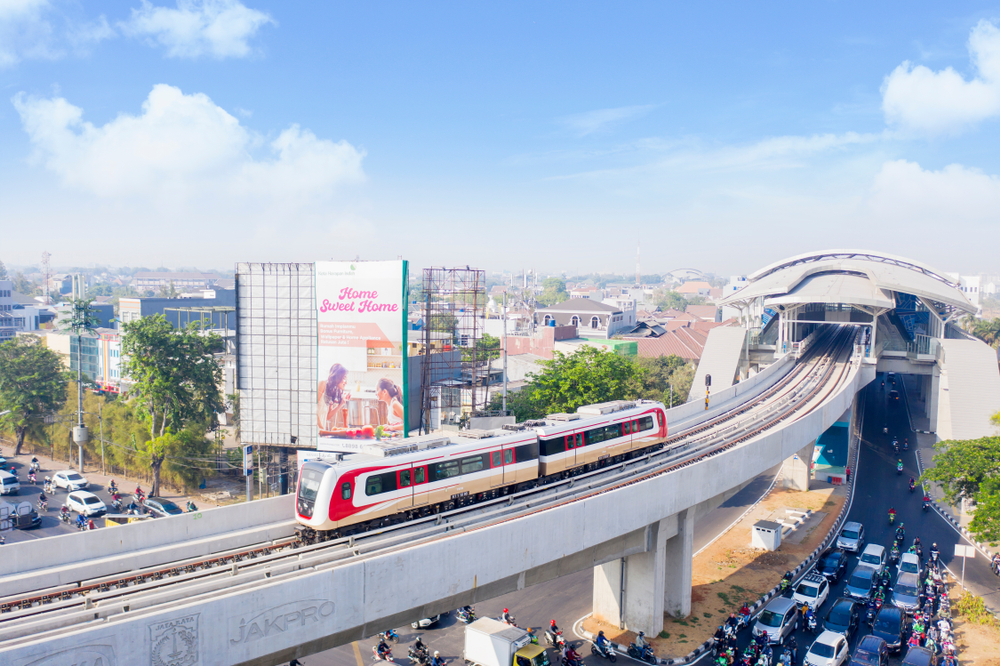Pandemic halts Indonesia’s Omnibus Law designed to revive the real estate market
Indonesia President Joko Widodo was counting on his wide-ranging Omnibus Law to kickstart his nation’s struggling real estate sector. With the pandemic causing chaos, however, the expected lift has yet to arrive

As 2019 ended, many Indonesia real estate watchers predicted a revival for the industry. The rollout of government subsidies and tax breaks for buyers would—they mooted—help the property sector shake off its long-term malaise.
But with the arrival of the pandemic dashing those hopes and plunging the country into its worst recession in 22 years, many are wondering whether Joko Widodo has time to turn things around before his second term ends.
President Jokowi, as he is widely known, swept to victory once again in 2019 on the back of pledges to turn Indonesia into an economic powerhouse and revive a lacklustre property sector. At the heart of his vision for the real estate industry is his wide-ranging Omnibus Law, which (along with a slew of other pledges) aims to cut red tape around property transactions, simplify the buying of land and ease restrictions on foreign investment.
Many see it as a gamechanger for the economy and real estate markets. It may well be. However, it has so far struggled to get out of the starting blocks—only passing into law in November due to the pandemic and prevarication over some of the law’s more contentious issues around labour rights.
“The changes introduced by the Omnibus Law to Indonesia’s real estate regime are massive,” law firm Assegaf Hamzah & Partners said recently. “But our view is that nothing in the Omnibus Law can be deemed as settled until the government issues the implementing regulations.”
While the exact date of implementation is still unclear, many are hoping it will be sooner rather than later to help offset the economic damage caused by the pandemic.
The country reported 765,350 cases and 22,734 deaths as of January 3. The infection rate slowed in the second half of the year and social restrictions were loosened. Nevertheless, the country went into its first recession in 22 years in November as growth fell 3.49 percent in the third quarter of the year, compared to the same period in 2019.
For the residential property market, the recession capped months of inactivity and years of low growth.
A survey by Bank Indonesia (BI) revealed that the combined sales of small, medium and large houses fell by 43.19 percent year-on-year in the first three months of the year due to the pandemic. In the same period, the disbursement growth of housing and apartment mortgages nearly halved by 4.34 percent.

For the condominium market, the pandemic accelerated a years-long trend of slow demand as investors took a wait-and-see approach and developers refrained from launching any new projects in the third quarter. At the same time, the apartment market saw occupancy rates plummet as the mainly foreign visitors it relies upon remained in their home countries.
“Residential sales were badly hit after the large-scale social restrictions imposed from April to May 2020 and from then until now,” says Hasan Pamudji, a senior associate director at Knight Frank Indonesia.
In a recent report, real estate services firm JLL said: “Developers are more likely to wait until the wider economic situation improves rather than launching units in a period when sales are likely to be difficult.”
In common with many political leaders around the world, the pandemic has exposed Jokowi. Many observers see the government’s handling of the crisis as a major obstacle to achieving the objectives of his pet policies.
Writing in the East Asia Forum, Liam Gammon, an expert in Asia Pacific Affairs at the Australian National University, argues that the government’s handling of the pandemic was woeful and the high rates of infection expose a level of corruption that should undermine any law designed to create an open, welcoming place to do business. At the same time the passing of the bill was marred by opacity and a lack of consultation, he adds.
“Whatever the merits of the law itself, the process by which it was passed speaks to growing dysfunction in key democratic institutions in Indonesia,” he writes. “With almost all political parties co-opted into the Jokowi government coalition after the 2019 election, the parliament rubber-stamped the bill after a rushed and opaque process that experts say ignored the parliament’s own standing orders.”

Compounding Jokowi’s woes is the desperate state of the real estate market in Indonesia. While the easing of restrictions saw some movement in sales, analysts don’t expect the market to return to pre-pandemic levels for several years unless a successful vaccine programme can be rolled out quickly.
“The government is putting tremendous effort on a vaccine programme that will be implemented in 2021,” says Hendra Hartono, CEO of realtor Leads Property Services Indonesia and member of the PropertyGuru Indonesia Property Awards judging panel.
“They expect that around 170 million people in Indonesia will be vaccinated. The ultimate aim is to decrease cases to a level where the government can resume activities to something near 100 percent of what they were before. That will take some time. Therefore, we expect that businesses and social activities won’t start to run normally until 2022.”
It’s a tall order, but if Jokowi can bridge the gap between the pandemic and the Omnibus Law, giving both buyers and developers confidence, some believe the residential market is in for a treat, particularly in the low and mid-tier segments.“Real demand remains intact in the long run as there are plenty of first-time homebuyers who need housing,” adds Pamudji. “Properties below IDR500 million ($35,517) will continue to perform to service this market.”
One key area where the government is expected to see success is infrastructure with the Omnibus Law helping to facilitate an ambitious program of improvements. The government has allocated a budget of IDR413.8 trillion for infrastructure upgrades, up by 47.2 percent from 2020, after adjustments to account for the pandemic and improving urban connectivity.

In Jabodetabek, the government has launched plans to connect DKI Jakarta and its satellite areas, Bogor, Depok, Tangerang, and Bekasi, to support the industry’s cross-region activities as well as improving the commuting between these areas.
“The president’s focus on infrastructure is expected to positively impact the property sector in 2021,” according to Marine Novita, country manager of property website Rumah.com.
Knight Frank’s Hasan also believes Jokowi’s second-term commitment to developing infrastructure, particularly new toll roads, LRT, MRT, and airports will speed up economic recovery by allowing for “new residential clusters”.
“In the short-term, we will potentially see many residential and industrial townships or clusters being built along and following new infrastructure developments,” he added.
But building the properties is one thing and getting people to buy them is another. Amid rising unemployment, declining consumer spending, and an economy in crisis—all of which could worsen as the global pandemic continues—time will tell whether the Omnibus Law is the silver bullet the country needs.
This original version of this article appeared in Issue No. 164 of PropertyGuru Property Report Magazine
Recommended
Why everyone is moving to Selangor and Johor: Malaysia’s real estate comeback
Malaysia’s upturn in fortunes is especially prevalent in secondary destinations such as Selangor and Johor
Penang’s silicon boom: How the US-China tech war is supercharging local real estate
Penang’s booming semiconductor industry has created ripples within the local real estate sector
New leader, new opportunities: How Hun Manet is shaking up Cambodia’s real estate game
Hun Manet is overseeing decent economic growth and widening access to the country’s real estate market for foreigners
Singapore embraces inclusive housing reforms amid resilient demand
The Lion City’s regulatory strength continues to exert appeal for international investors








